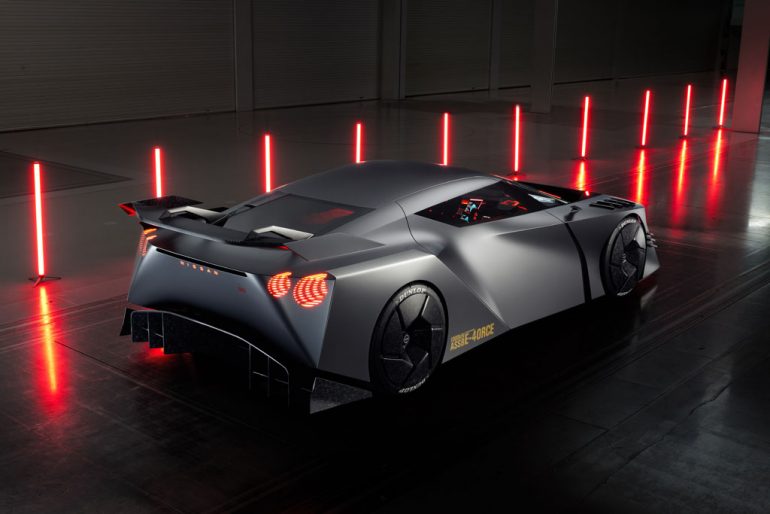
The Nissan GT-R, a model that has been captivating automotive enthusiasts since its inception, is set for a revolutionary upgrade. While the current GT-R, known as the R35, launched in 2007, its roots trace back even further to the Skyline GT-R concept of 2001. Despite its age, the R35 is still in production, but Nissan has grand plans for its successor, the R36.
The R35 GT-R, affectionately known as “Godzilla,” defies the typical life cycle of supercars, which usually span six to seven years. Nissan’s Senior Vice-President, Francois Bailly, recently confirmed in an interview with Australian magazine Drive that the R35 will continue to be a part of Nissan’s lineup for a while longer. Bailly emphasized Nissan’s commitment to producing top-tier sports cars, dismissing any notion of a “half-baked” GT-R.

The transition to the R36 won’t be immediate. Bailly pointed out that current EV technology isn’t yet ready for high-performance applications like the GT-R. He specifically mentioned solid-state batteries, which are expected to revolutionize the EV market but won’t be available until around 2028. Nissan’s Hyper Force concept from last year, boasting 1,341 horsepower, offers a glimpse into the future of a fully electric GT-R equipped with this advanced battery technology.
Matthew Wright, Nissan Europe’s vice president of powertrain engineering, echoed the potential of solid-state batteries in an interview with Auto Express. Wright highlighted that these batteries will be a “game-changer,” significantly enhancing charging speed and energy density while reducing weight—a crucial factor for performance cars like the GT-R. The current GT-R Nismo, for instance, weighs in at 3,865 pounds, and a lighter battery would greatly enhance its performance.

Nissan plans to begin prototype testing of solid-state battery-equipped EVs in 2026, with a production model expected by 2028. The first vehicle to feature this technology will be a “Japanese-produced vehicle,” though its exact identity remains undisclosed. Consequently, a new GT-R might not debut until 2029 or 2030. If the R35 remains in production until then, it would mark a remarkable 23-year run.
Despite these plans, there are speculations that the current GT-R might not survive until the end of the decade. Japanese publication Mag-X suggested that 2025 could be the final year for the R35, bolstered by Nissan’s announcement of a limited production run for the 2025 GT-R in Japan. This raises the possibility of a hiatus before the R36 is ready for launch.
Interestingly, GT-R sales in the United States saw a significant increase of 584 percent last year, with 390 units sold compared to just 57 the previous year. While these numbers are modest, the spike underscores the car’s enduring appeal. Losing the GT-R without an immediate replacement would be disappointing, especially in light of the discontinuation of other iconic models like the Audi R8 and the Lamborghini Huracan.
Even if the next-gen GT-R features a combustion engine, it won’t be entirely new. Nissan has ceased investing in new internal combustion engine (ICE) development, meaning the R36, if not fully electric, will likely utilize an evolved version of the current VR38DETT engine.
The anticipation for the Nissan GT-R R36 is palpable. While the transition to next-gen EV technology is gradual, the promise of solid-state batteries and the continuation of the GT-R legacy ensures that the upcoming model will be a true game-changer in the supercar arena.

Lloyd Tobias is a seasoned automotive journalist and passionate enthusiast with over 15 years of experience immersed in the world of cars. Whether it’s exploring the latest advancements in automotive technology or keeping a close pulse on breaking industry news, Lloyd brings a sharp perspective and a deep appreciation for all things automotive. His writing blends technical insight with real-world enthusiasm, making his contributions both informative and engaging for readers who share his love for the drive. When he’s not behind the keyboard or under the hood, Lloyd enjoys test driving the newest models and staying ahead of the curve in an ever-evolving automotive landscape.